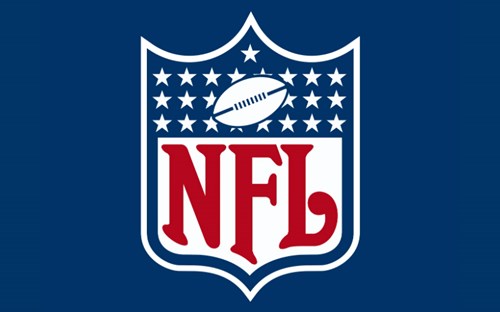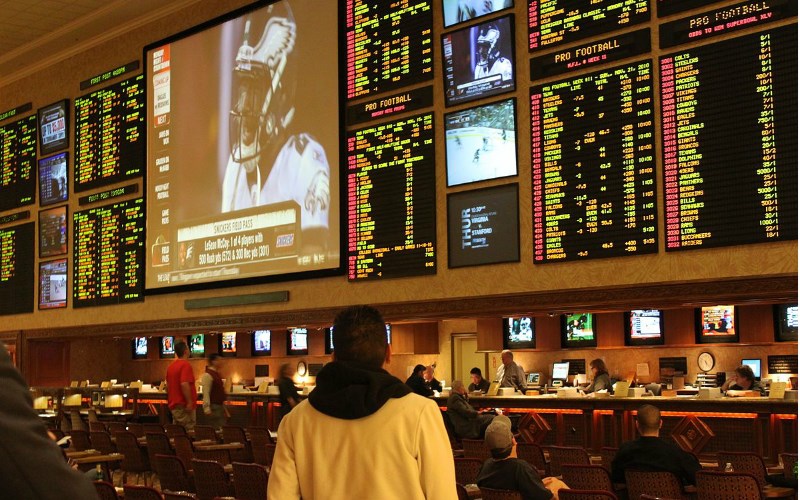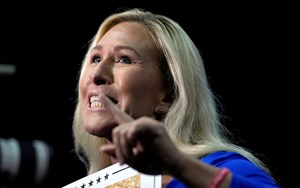Something like 50 million people were betting on the game between the Kansas City Chiefs and the San Francisco 49ers. Plus, the broadcast ad lineup featured once-taboo spots for several betting services.
Gambling used to be radioactive for sports. The pro leagues and their college counterparts wanted fans to trust that outcomes were honest, not tainted.
The sports world had been chary about gambling ever since the "Black Sox" scandal, when eight Chicago White Sox players were banned for life from major league baseball after scheming to lose the 1919 World Series to the Cincinnati Reds.
Speaking of the Reds, all-time base hit record holder Pete Rose is still denied entry into the National Baseball Hall of Fame for betting on games while he played and managed the team. "Charlie Hustle," as Rose is known, says he never bet against his own team. But betting is betting, the Hall says.
Given that baseball has now embraced gambling, it would not be surprising if the Hall were reconsidering. Mr. Rose's exploits are already chronicled in various parts of the museum, albeit without induction status. But I digress.
All professional sports once prohibited open promotion of gambling. They winked at the bookie trade, but ads for betting were verboten in stadiums or in print or broadcasting.
 Until fairly recently, Nevada had a betting monopoly. New Jersey broke through in 1978 with legalized casinos in Atlantic City opening after a statewide referendum in 1976.
Until fairly recently, Nevada had a betting monopoly. New Jersey broke through in 1978 with legalized casinos in Atlantic City opening after a statewide referendum in 1976.
In 1979, the Seminole Tribe opened the first high-stakes bingo hall in Hollywood, Florida. About 10 years later, Congress enacted the Indian Gaming Regulatory Act, which led to lucrative casinos in many states. This triggered so much wampum that the dam broke. State after state legalized various forms of gambling as a funding source for "education" (wink, wink).
Nevada still controlled sports betting until 2018, when the U.S. Supreme Court legalized it for the whole country. In short order, 38 states plus DC and Puerto Rico adopted legal sports betting.
We're not talking here about friendly wagers or office pools. We're talking serious money.
As much as $7.5 billion was bet on sports in the U.S. in 2023, according to Statista.com. Much of the betting is done through mobile apps like FanDuel, DraftKings, BetMGM and Caesars Sportsbook.
Even some colleges, such as Michigan State and Louisiana State, have signed multi-million-dollar deals with Caesars Sportsbook to bring betting on campus.
 The Super Bowl this year featured an ad for DraftKings starring actor/comedian Kevin Hart and baseball great David "Big Papi" Ortiz.
The Super Bowl this year featured an ad for DraftKings starring actor/comedian Kevin Hart and baseball great David "Big Papi" Ortiz.
FanDuel sponsored a halftime "Kick of Destiny" featuring former New England Patriot future Hall of Famer Rob Gronkowski, whose agent must be working overtime. Is it me or is the likeable Gronk in every other ad on TV?
While gambling addiction is not a problem for most people, more than 5.7 million Americans have a gambling obsession, according to the National Association of Administrators for Disordered Gambling Services.
Lots of people love betting on all sorts of things and see it as harmless recreation. Others have seen it tear families apart.
Like any vice, gambling can be addictive. It also can corrode personal responsibility and the work ethic. The Bible does not address gambling directly but has many warnings about seeking wealth above all.
Wanting something for nothing is one of the most powerful temptations known to humanity. It's why state-run lotteries have exploded, with top prizes sometimes reaching hundreds of millions of dollars despite astronomical odds.
Many fiscal conservatives like the lottery concept. They say it beats raising taxes and is voluntary.
Well, okay, but if you want smaller government, forget it. Feeding the beast only makes the beast bigger. Lotteries enable governments to keep spending beyond their means instead of scaling back, and they tempt the most vulnerable among us with false hope.
One of the funniest scenes in cinema that also packs a punch is in the 1985 comedy "Lost in America." Albert Brooks plays a man who learns that his wife, played by Julie Hagerty, has gambled away everything they own in one wild night in Vegas.
So, there he is, trying to persuade the cynical casino manager played by Garry Marshall to give all the money back to show what a big heart the casino has and how this could anchor a "bold" ad campaign.
Mr. Marshall lets him go for several minutes while looking on with utter amazement that anyone could be this naïve.
The lesson? In the end, The House always wins.
That's what they won't tell you in the Super Bowl ads.
This article appeared originally here.
Notice: This column is printed with permission. Opinion pieces published by AFN.net are the sole responsibility of the article's author(s), or of the person(s) or organization(s) quoted therein, and do not necessarily represent those of the staff or management of, or advertisers who support the American Family News Network, AFN.net, our parent organization or its other affiliates.








